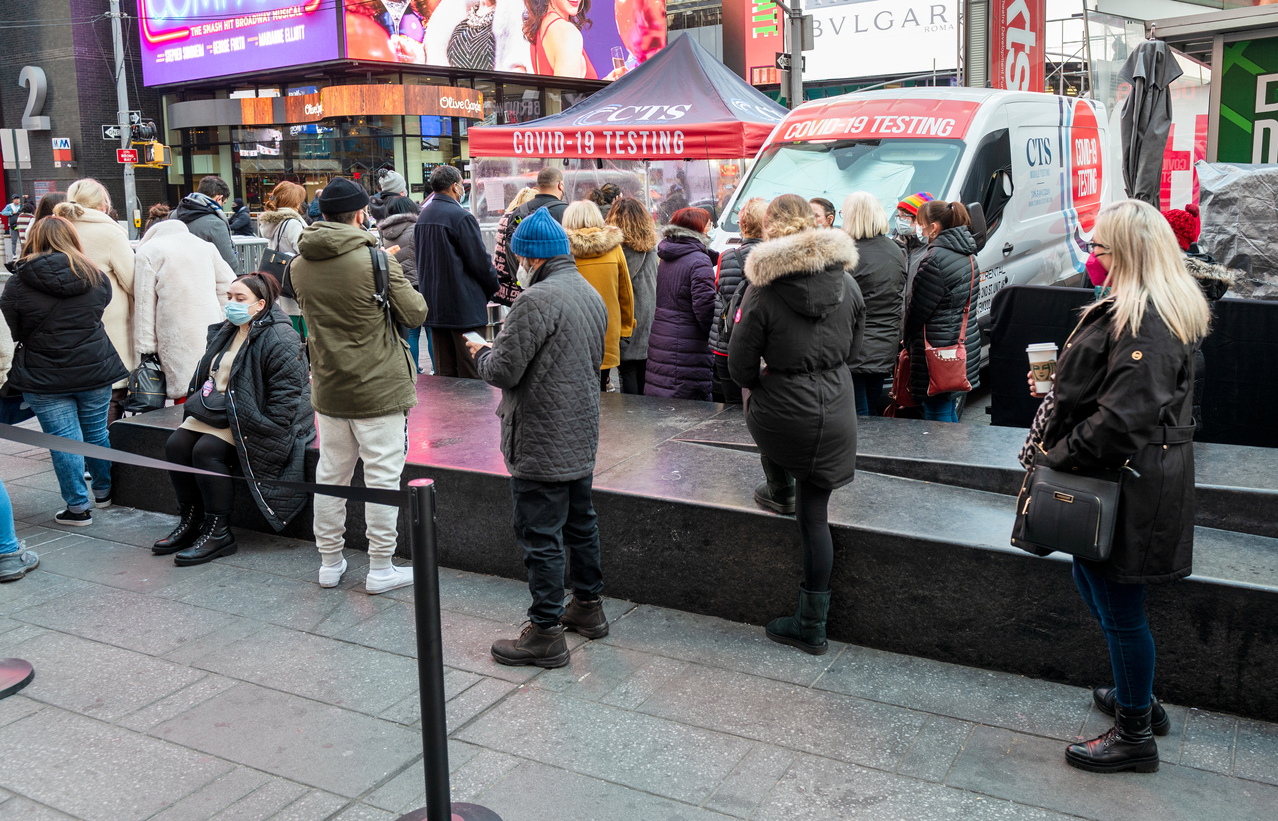A study by CUNY SPH researchers suggests that federal measures supporting free testing and treatment for COVID-19 may have lessened the health care impact of the pandemic and prevented an increase in racial/ethnic health disparities.
In a study published in The Journal of Urban Health, CUNY SPH alumni Madelyn Carlson (MPH) and Matthew Romo (PhD), with Associate Professor Elizabeth Kelvin found that unmet healthcare need among New Yorkers during the first year of the pandemic did not differ significantly from 2018-2019 and in fact decreased among those without health insurance.
The researchers used data from the Community Health Survey, collected in 2018, 2019 and 2020, to compare unmet healthcare need within the past 12 months during year one of the pandemic (2020) versus the two years prior (2018-2019).
Overall, 12% of New Yorkers (experienced unmet healthcare during the three-year period. In univariate and multivariable models, the first year of the pandemic was not associated with change in unmet healthcare need compared with 2018–2019.
However, researchers found significant effect modification by health insurance status. In the regression models stratified by health insurance status, adults without insurance had decreased odds of experiencing unmet healthcare during the first year of the pandemic compared to the two previous years, while those with health insurance had a slight increase. The varying direction of the association suggests that the impact of unmet healthcare need had a differential effect by health insurance status, which may partially explain the lack of association between the first year of the pandemic and unmet care need in the population overall.
There was no effect modification by race/ethnicity, despite the fact that some groups were disproportionately impacted by COVID-19. The universal COVID-19 healthcare policy may have prevented an increase in healthcare access disparities.
“This analysis adds to the evidence that universal healthcare promotes population health,” says Carlson. “Our findings suggested that even a limited version of universal healthcare (i.e., government financed, no-cost COVID-19 healthcare) had a major impact in preventing exacerbation of healthcare access disparities. We feel that these findings have important implications for how states and cities can respond to COVID-19 and future epidemics.”




